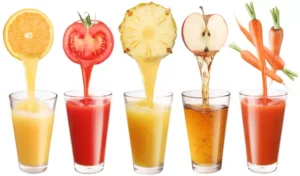
Goal chasing can also be addicting, and it’s a science you can use to your advantage. Following a list of tips isn’t easy, especially if you try to do them all at once. Our brains don’t do well at multitasking, that’s why choosing one very tiny goal at a time offers you the best chance of success. That’s why the more motivated you are to learn something, the more engaged Sober living house and interested you become – hopefully making the learning process an enjoyable or worthy endeavor.
Researchers uncover new target of alcohol in the brain
- This dopamine release may contribute to the rewarding effects of alcohol and may thereby play a role in promoting alcohol consumption.
- It even helps to protect your gastrointestinal lining and works with your immune system – it’s everywhere!
- Since alcohol disrupts dopamine production and usage, drinking can lead to either an exacerbation in symptoms or the development of mood disorders.
Some individuals may have genetic variations that affect their dopamine receptors or the enzymes involved does drinking release dopamine in dopamine metabolism. For example, certain alcohol gene mutations can influence dopamine function and potentially alter an individual’s susceptibility to alcohol addiction. These genetic differences can affect how a person responds to alcohol, including the intensity of the dopamine response and the likelihood of developing alcohol use disorders.
MDMA’s Impact on the Brain: Neurotransmitters, Effects, and Potential Risks
Autonomic, or visceral, responses regulate the involuntary bodily functions, such as heart rate, blood pressure, and gastrointestinal activity. The term “dopaminergic” refers to both the neurons and the signaling processes that use dopamine. It is also worth bearing in mind that often we drink while also eating and / or socialising, so this feel-good boost is often due to these two aspects, rather than the drug itself.
How Does Alcohol Impact Dopamine Levels?
Basically, dopamine is involved in almost every area of your thought and reward system. So the healthier your brain is, the better it can use dopamine effectively and communicate messages between nerve cells and the rest of your body. That means you can go after your goals much more easily, without losing motivation. Brodie and his colleagues will continue to investigate the role of KCNK13 and examine how selective manipulation of the channel in other brain areas and cell types might alter alcohol-related behaviors.
Alcohol and Sleep from Alcohol Explained 2
- When discussing the consequences of alcohol’s actions on the brain, researchers frequently use terms such as motivation, reinforcement, incentives, and reward.
- Naltrexone is an opiate-receptor antagonist and has been shown to limit cravings by reducing the positive reinforcement effect of alcohol consumption.
- Basically, dopamine is involved in almost every area of your thought and reward system.
- As a neurohormone, it’s also released by the hypothalamus in your brain, where hormones are produced to regulate your basic bodily functions and mood, like heart rate, temperature, sex drive, sleep, and hunger.
Alcohol significantly impaired both response execution and response inhibition. The consumption of energy drink mixed with alcohol https://ecosoberhouse.com/ antagonized the alcohol-induced impairment of response execution, but not alcohol-induced impairment of response inhibition. According to a study published in the Proceedings of the National Academy of Sciences of the United States of America, alcohol’s effects on dopamine levels and receptors are partially responsible for why relapse is so common for people recovering from alcoholism. It can take a long time for the brain to return to a pre-drinking state, and sometimes it never does.
Into Action is an addiction treatment center specializing in personalized treatment for drug and alcohol abuse, conveniently located in Houston, Texas and led by experienced master’s level counselors and medical professionals. Sunnyside is the leading alcohol health platform focused on moderation and mindfulness, not sobriety. On average, members see a 30% reduction in alcohol consumption in 3 months, leading to improved sleep, diet, and overall wellbeing. Our brains naturally shrink as we age, but heavy drinking and binge drinking can exacerbate those effects.
The Maze of Addiction
- By the end, you’ll have a comprehensive understanding of how that seemingly innocent cocktail can set off a complex chain of neurochemical events in your brain.
- The study, published in the journal Neuropsychopharmacology, involved using positron emission tomography, or PET scans among 49 men who initially tasted beer and then tasted gatorade.
- “We are the first to show that KCNK13 is a primary, direct target of alcohol and that this channel is important for regulating alcohol consumption.
- Being aware of alcohol’s effects on brain chemistry can help individuals make more informed decisions about their drinking habits.
- The complex relationship between alcohol, dopamine, and brain function has significant implications for both mental health and addiction.
- Without the alcohol to produce enough dopamine, the person begins to experience dopamine deficiency, which is implicated in ADHD, Alzheimer’s, Parkinson’s, depression, bipolar disorder, addiction, and even schizophrenia.
These substances usually trigger the release of dopamine, the body’s “feel-good” neurotransmitter. Once a person does something that trips the brain’s reward center, they feel good and are more likely to repeat the activity. Fortunately, cognitive impairments created by alcohol are reversible with abstinence.
Further research aimed at clarifying the interaction between the DA system, the glutamatergic system and other neurotransmitter systems is needed before it will be possible to improve the effectiveness of interventions for preventing and treating alcohol dependence. However, it’s important to note that while alcohol initially boosts dopamine levels, its effects on the dopamine system are far more complex and potentially problematic in the long term. The relationship between alcohol and dopamine is not a simple one of increase or decrease, but rather a dynamic interaction that changes over time and with repeated exposure.